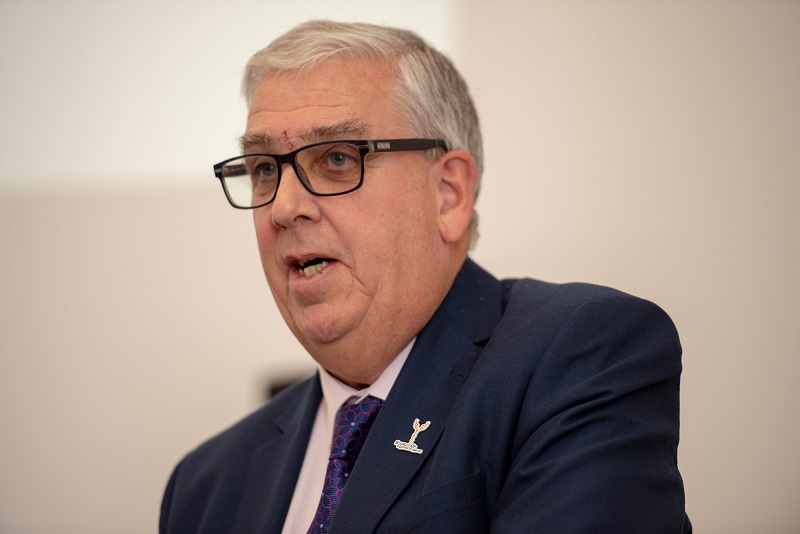
An appeal has gone out to rural businesses to help make North Wales a hostile environment for the gangmasters of modern slavery and human trafficking.
These victims of organised crime have been found on remote cannabis farms, in pop-up brothels in hotels and on building sites across the region.
The call has come from one of the UK’s top law enforcement officers, Lynne Owens, the Director General of the National Crime Agency and from North Wales Police and Crime Commissioner Arfon Jones.
The Agency leads the country’s fight against organised crime and Ms Owens was speaking at a conference at St Asaph called by the Police and Crime Commissioner who has identified modern slavery as one of his key policing priorities.
It comes against a backdrop of a more than 60 per cent increase in modern slavery and human trafficking in the UK over the past 12 months involving 2,800 people from 91 different countries, including almost 100 in Wales.
Arfon Jones, a former police inspector, has vowed to make North Wales a hostile environment for the slavers and he said: “My aim is to make North Wales a difficult landscape for those who peddle the misery of exploitation and slavery.
“With the help of our business sector we stand a greater chance of achieving these ends because agriculture, construction and hospitality are three large and important industries in North Wales. They are also industries in which criminals have tried to hide or disguise modern slavery and exploitation.
“I have identified it as a policing priority for North Wales since I published my first police and crime plan in April 2017 and yet a lot of the people who live and work in North Wales do not think of modern slavery as something that happens here.
“Alternatively people see the crime, but turn a blind eye to it– they dismiss it but those working in the local authorities, policing, health and the third sector have seen it first hand and have come across examples of modern slavery, trafficking and exploitation in their work that must be dealt with.”
He said that in the past two years victims of trafficking had been found in hotels in North Wales where organised crime gangs had set up pop-up brothel services using vulnerable women, North Wales cannabis farms discovered using slave labour and others were being trafficked through Holyhead often to be sexually exploited.
Mr Jones added: “The biggest misunderstanding about modern slavery is that it does not exist in somewhere as rural and beautiful as North Wales. It’s too quiet here, too peaceful, but that is not the case.
“The second biggest misunderstanding is that if modern slavery does exist, it is only seen in businesses deliberately established by organised crime to launder money, traffic and exploit people in businesses like car washes and nail bars.
“Well established and successful businesses can be infiltrated by modern slavery without the knowledge or consent of the owners and managers
“Businesses need to know and understand their supply chains. Where is the labour coming from or the goods and services? Who is renting the land and buildings or buying the produce?
“Prevention is better than cure and with the help of our business sector we stand a greater chance of making it very difficult to commit this type of criminality in North Wales and of bringing it out into the open to get the awareness needed to help prevent it and the intelligence needed to tackle it.”
And according to Ms Owens much of it is hiding in plain sight including in rural areas, particularly in the agricultural, construction and hospitality sectors, often unnoticed by the legitimate businesses indirectly employing today’s slaves.
She said: “Although the true scale of modern slavery is unknown we estimate there are likely to be tens of thousands of people in the UK subject to slavery, trafficking and associated exploitation.
“We believe the vast majority of modern slavery is likely to be driven by organised crime but while it may be more prevalent than we might realise it often remains hidden.
“What we say to the public is that slavery and exploitation may be closer to you than you think. There could be victims of exploitation working in domestic servitude or forced labour in your street, in your local nail bar or car wash.”
For more information on the work of the North Wales Police and Crime Commissioner’s Office go to https://www.northwales-pcc.gov.uk/en/home.aspx